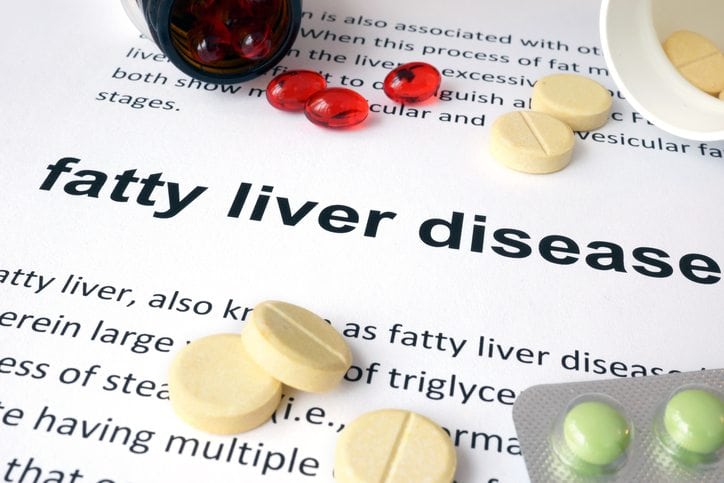
So you see your doctor, and he says you have a fatty liver. What does that mean?
As the name implies, it means you have increased fat deposits in your liver cells. This is quickly becoming the most common cause of liver disease in the United States, especially in light of the obesity epidemic we are facing.
What are the symptoms if I have a fatty liver? Most patients are symptomatic at the time of the diagnosis, which is usually an incidental finding based on the results of x-rays or routine blood tests. Typically, patients complain of vague upper abdominal pain, mostly on the right-hand side, with bloating and increased nausea.
Fatty liver disease is not always serious, but it can be if the fat in your liver causes inflammation or scarring of your liver tissues. This condition is called non-alcoholic steatohepatitis, or NASH.
The most common cause of fat build-up in the liver is from insulin resistance. Insulin is the primary hormone that helps us burn excess calories and prevents fat accumulation. Insulin resistance is most common in individuals with diabetes, or those people who are obese or have increased lipids.
When evaluating patients for fatty liver disease, the doctor must always rule out of the influence of alcohol consumption as a contributing factor to a fatty liver. Therefore, individuals who drink more frequently should stop consuming alcohol for a few weeks to determine if the fatty liver is a result of alcohol use or not.
Fatty liver disease is usually diagnosed based on elevated liver function tests or an abnormal looking liver seen on an abdominal ultrasound or CT scan. Sometimes a liver biopsy may be needed to confirm the diagnosis and determine the degree of injury to the liver.
The good news is that a fatty liver can be treated. The most effective means is correcting the underlying causes: losing weight if necessary, controlling your diabetes better, and monitoring your lipids to make sure that they are not too high.
Research has shown that certain vitamins, antioxidants and insulin sensitizing drugs can also be helpful. Again, for the majority of patients, getting to an ideal body weight is the most effective way of treating the disease.
Dr. Housein Wazaz is affiliated with MidState Medical Center and practices with Gastroenterology Specialists.


